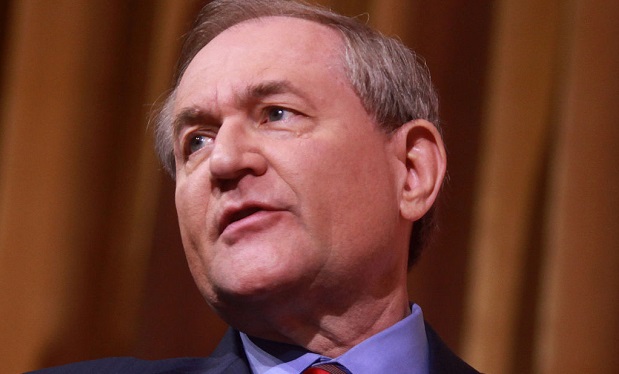Former Virginia Governor Jim Gilmore took it on the chin in New Hampshire. The GOP candidate for president ran into the Trump buzzsaw and couldn’t find traction among angry New Hampshire voters desperate for change. Even if change means sending a divisive businessman with a habit of criticizing military heroes to the White House. But why didn’t Gilmore, who enlisted in the army after graduating from college, do better?
He’s underfunded, certainly, compared with primary victor Trump. But Jim Gilmore is also the only U.S. military veteran in the presidential race — and that used to count for something among voters. Trump didn’t get the official endorsement of New Hampshire veterans groups either — that went to Jeb Bush, who couldn’t capitalize on it. New Hampshire has its fair share of veterans in dire straits, a demographic Gilmore appealed to directly, fashioning himself as the veterans’ candidate. But with Bush and Gilmore finishing near the bottom, it’s worth asking: is the veterans’ vote no longer a valuable commodity? Or, better, is there a veterans’ vote to be won as a block — or are vets as fragmented as soccer moms when it comes to contemporary presidential politics?
As the only veteran in the race, I understand how much our veterans have sacrificed to ensure our nation’s security. #VAReform
— Jim Gilmore (@gov_gilmore) December 30, 2015
